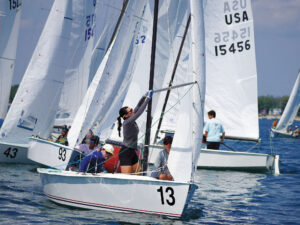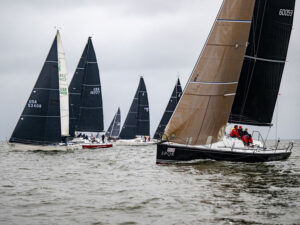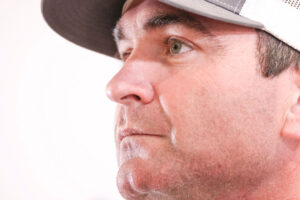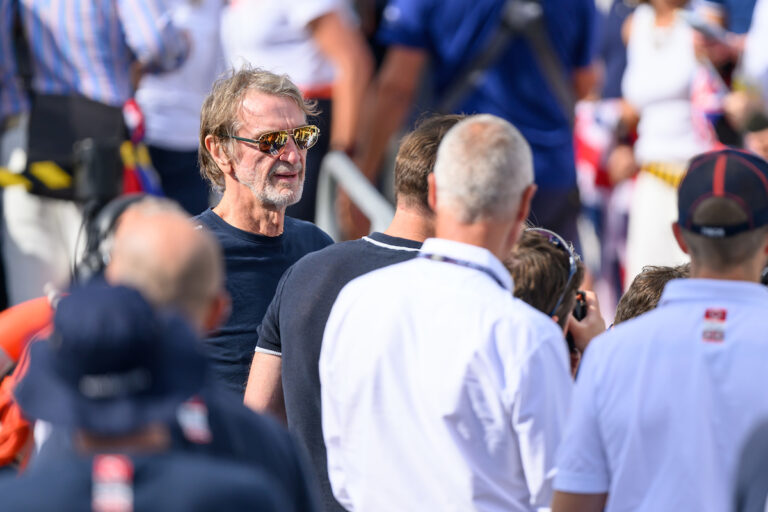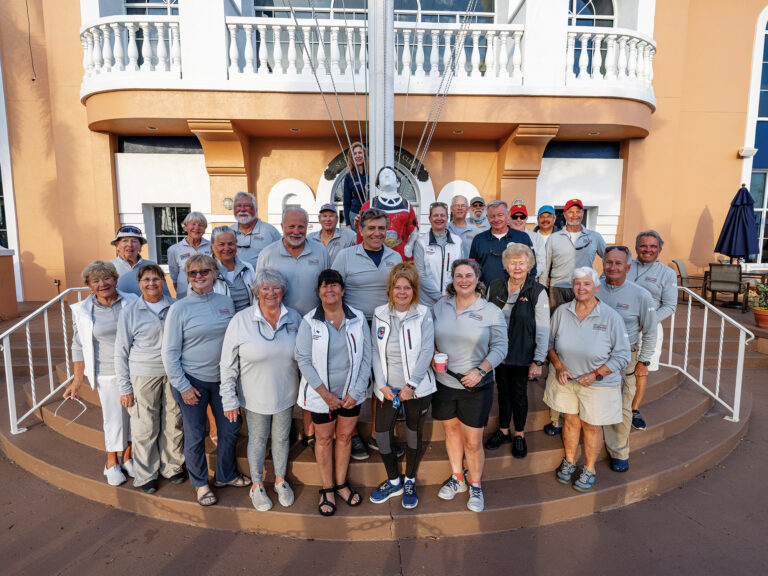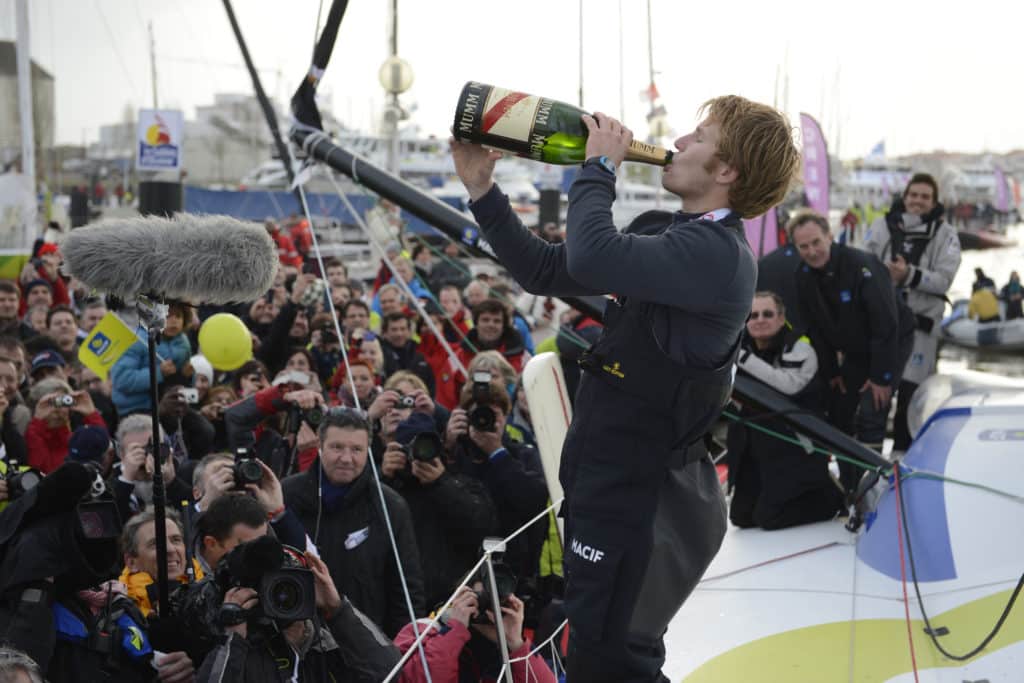
Francois Gabart
Press Release
January 27, 2013
TRANSCRIPT OF PRESS CONFERENCE ****WITH FRANÇOIS GABART (MACIF) WINNER OF THE VENDÉE GLOBE 2012-13
“The entire race is something very intense and once you arrive in Les Sables d’Olonne, the transition is a unique moment. I’ve given 100% for two months and a half and when it stops all of a sudden, it feels quite strange.
My initial goal was to do my best, but MACIF and I didn’t think about winning, we weren’t that ambitious. We wanted to have a great race that was it. But when I passed Armel in the Indian Ocean, I knew Jean-Pierre was behind and Vincent was out of the race and I started thinking maybe I could do it.
I want to thank Armel because he’s one of the reasons why this Vendee Globe was so unique. Fighting against him made it all so special. When I see Armel, I want to thank him for making it possible for me to have such a great race with him, and thank him for not passing me too!
Four years ago, I was at Michel Desjoyeaux’s press conference when he won the Vendee Globe, I had started pro sailing six months before. What happened since then is something incredible. I don’t really realise.
What is really difficult in the VG is how many problems and technical issues you face. One problem is easy to deal with, but several at the same time or in a row, that’s another story. Tough nights are among the most difficult moments, especially when you know it’s just the beginning of the race. My priority was to do my best to make sure each problem was taken care of, so I don’t have too many at the same time.
Last night was difficult but it’s ok because I knew it was the last. But still, there were huge waves, cargo ships and fishing boats, things that can definitely put an end to your race. There were 35-knot gusts, it was very dangerous and difficult.
I’ve surprised myself, yes, and it’s been going on for quite a while, it feels great. I don’t know how long it will last though. I look back at my race and wonder how I was able to handle all those issues and twists of fate, either at the same time or one after the other.
I didn’t tell you about all the issues I faced. The first one was when the engine we use to generate energy broke down. Sure, the hydrogenerators were still there but being without a backup after 5 days isn’t a good thing. There was seawater in the system and the pump was not working either. I had the same problem in the Jacques Vabre last time; but this time, I had no spare pump. That was the first big thing and I felt stronger after fixing it because I knew I could take care of things like that. Every repair makes you feel more confident. I’ve learned a lot in that race.
I’d say the key moment was after Cape Horn, when we had a choice to make in the South Atlantic. Unlike before, our choices differed and after that, there were always 100 or 200 miles between us.
I wasn’t too surprised with the Southern Ocean that I had never sailed in before, maybe because I had prepared well with Mer Agitée and Michel Desjoyeaux. If there’s anything that surprised me, it’s more general, it’s the fact that the Vendée Globe effort is a long and constant one, I wasn’t aware it was that bad, it never stops. When things go fast, it shakes too much, you can’t do anything except writing down what broke or what isn’t working. When things are quieter, you take care of what needs to be repaired or set, and then the next tough moment comes, it’s a never-ending thing.
I really don’t know if I want to go back on another Vendee Globe. I need to sleep a for few nights and think about it harder. Four years ago, if someone had told me I would be in this Vendée Globe, I would have said yes immediately, even on a dinghy. You need to have a deep desire to do it. Right now, I don’t have it, but it may very well be back in a few days or weeks. I’ll go again only if I truly want it, otherwise it’s dangerous and unhealthy. If you don’t have this strong desire to do the Vendée Globe, it can feel like a punishment.
I had a blood test before the race and another one now to compare and see what changed. My weight barely changed, I think I actually gained a few grams. I left with 87 days of food as well as 7 days of emergency food so I had no food problem at all, which is good because we burn so many calories. So I ate what I wanted any time I wanted. Last week, I opened the last bag that still had 15 days of food in it, so I got to pick my favourite things.
I have a very special relationship with my boat, I’m so proud of the MACIF monohull. I want to thank the entire team for the great work they did, she’s so great. She and Banque Populaire are sister ships, they’re probably the last boats Hubert Desjoyeaux worked on, and he obviously did an amazing job. At first, I was not very familiar with the boat and I made it mine. As an engineer, I’m interested in the technical aspects and the Vendee Globe definitely allows us to sail on amazing machines.
I didn’t speak with my family that much. I called my girlfriend and son once a week, maybe a little bit more by the end of the race. We sent each other emails, though. Writing was hard, but reading them felt great. I must have called my parents twice in the entire race. I know they were behind me, supporting me, but during the race, I had to focus on what I was doing, on the race itself.
Seeing the crowd along the channel and on the water was just crazy. I thought I’d be prepared because I was a spectator in one of those boats, right next to Foncia, four years ago. But you’re never prepared to such a thing. You just don’t realize how many people you affect when participating in such a race. It’s great, because if there wasn’t that, we’d be just be crazy people competing in a pointless crazy race.
When the race started, I thought I’d communicate a lot with people, not like Michel Desjoyeaux. Then came that engine problem, which I decided not to talk about because it could be seen as a weakness by others. And then I guess I kept doing that, even though at first I really wasn’t into competition. When Armel and I started fighting, I became a fierce competitor, and in that context, you just can’t give away any hint or info. People may think they know I have a specific problem but as long as you don’t talk about it, they can’t be sure.
The last night of the race was very difficult, the conditions were tough and I knew I could lose it all just before the finish line. I was careful, I was conservative, but when you have violent waves and 40-knot gusts in the dark, in the middle of cargo ships and fishing boats, you just can’t have a good time.
We had no agreement with Armel about not fighting in the Southern Ocean. Maybe some people in our team talked about it, especially when we were in iceberg areas, but Armel and I never discussed anything or acted upon anything.”
Read more from blogger Bruce Gain on Gabart’s record and achievements.

